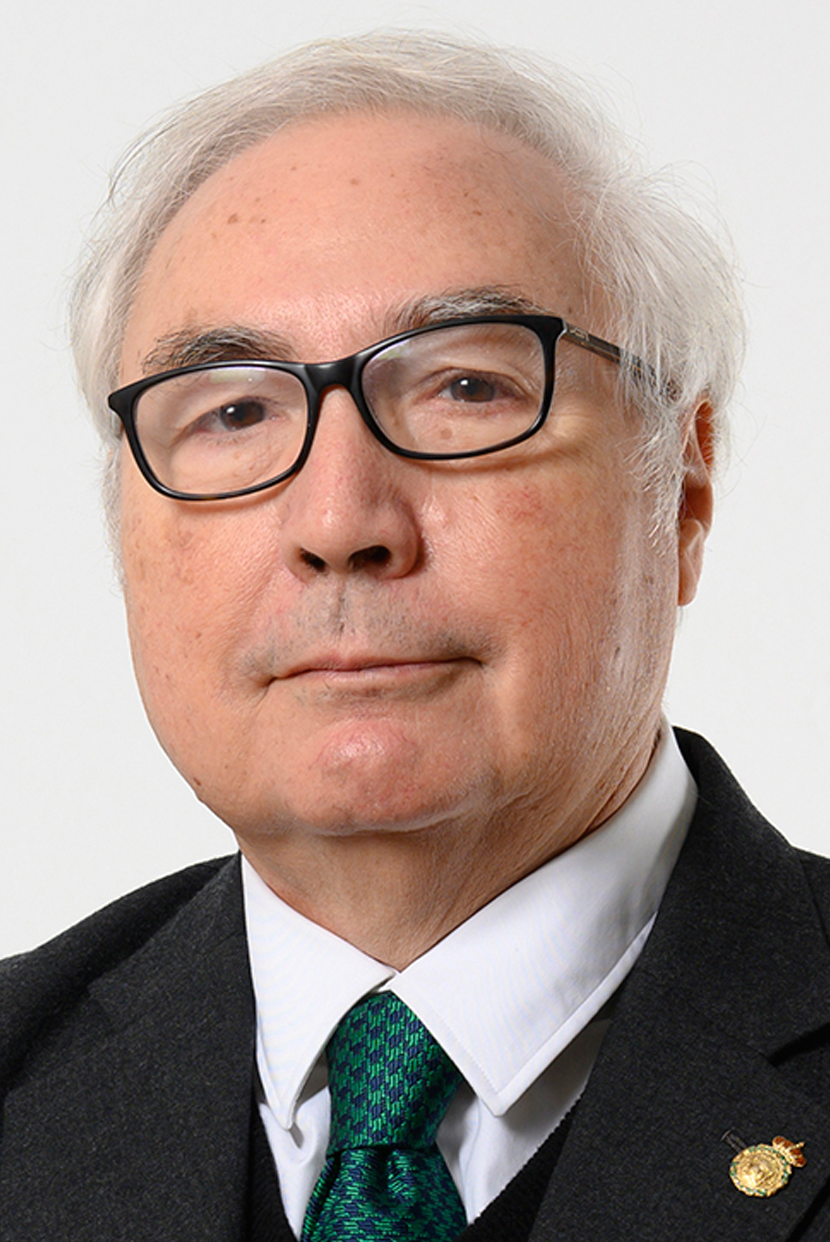„Raum ist der Ausdruck der Gesellschaft.“
The Rise of the Network Society: The Information Age: Economy, Society and Culture, Volume I
Manuel Castells ist ein spanischer Soziologe. Seit dem 13. Januar 2020 ist er Minister für Universitäten im Kabinett Sanchez II.In den 1970er-Jahren spielte Castells eine zentrale Rolle in der Entwicklung marxistischer Stadtsoziologie. Castells bisher wohl bedeutendster Beitrag zur Soziologie und Medientheorie ist die dreibändige Studie zur Weltgesellschaft als Netzwerkgesellschaft – The Information Age. Economy, Society, and Culture – die zwischen 1996 und 1998 erstellt wurde und in Zusammenhang mit dem Internetboom zumal in Kalifornien weiten Anklang fand. Die wesentliche These dieses Werkes zielt darauf ab, dass ein neues Paradigma, das Netzwerk, zu einem gesamtgesellschaftlichen Phänomen aufgestiegen ist, und nicht wie bisher nur gesellschaftliche Teilbereiche verändert. Das Werk erschien ab 2001 auch auf Deutsch. Wikipedia

„Raum ist der Ausdruck der Gesellschaft.“
The Rise of the Network Society: The Information Age: Economy, Society and Culture, Volume I
Quelle: The Internet Galaxy - Reflections on the Internet, Business, and Society (2001), Chapter 5, Computer Networks and Civil Society, p. 142
Quelle: The Rise of the Network Society, 1996, p. 390 as cited in: Jari Peltola (2006)
Quelle: The Urban Question: A Marxist Approach, 1977, p. 216
Quelle: The Internet Galaxy - Reflections on the Internet, Business, and Society (2001), Chapter 1, Lessons from the History of the Internet, p. 22
Quelle: The Internet Galaxy - Reflections on the Internet, Business, and Society (2001), Chapter 3, e-Business and the New Economy, p. 92
Quelle: Materials for an exploratory theory of the network society (2000), p. 13
Quelle: The Internet Galaxy - Reflections on the Internet, Business, and Society (2001), Chapter 3, e-Business and the New Economy, p. 112
Quelle: Materials for an exploratory theory of the network society (2000), p. 5
Materials for an exploratory theory of the network society (2000)
Quelle: The Rise of the Network Society, 1996, p. 211 as cited in: Jari Peltola (2006) " The Place of Politics in Manuel Castells’s Network Society http://www.edemocracy.uta.fi/eng/haefile.php?f=115"
Quelle: The Internet Galaxy - Reflections on the Internet, Business, and Society (2001), Chapter 1, Lessons from the History of the Internet, p. 22
Quelle: The Internet Galaxy - Reflections on the Internet, Business, and Society (2001), Chapter 9, The Digital Divide in a Global Perspective, p. 269
Quelle: The Urban Question: A Marxist Approach, 1977, p. 276)
Quelle: Urban renewal and social conflict in Paris, 1972, p. 93
Quelle: The Internet Galaxy - Reflections on the Internet, Business, and Society (2001), Chapter 2, The Culture of the Internet, p. 48
“The Internet is, above all else, a cultural creation.”
Quelle: The Internet Galaxy - Reflections on the Internet, Business, and Society (2001), Chapter 1, Lessons from the History of the Internet, p. 33
Quelle: The Rise of the Network Society, 1996, p. 433–434 as quoted in: Wayne Hope (2006) Global Capitalism and the Critique of Real Time http://www.sagepub.com/dicken6/Sociology%20Online%20readings/CH%202%20-%20HOPE.pdf. Sage publications. p. 289
“The Internet Culture is the culture of the creators of the Internet.”
Quelle: The Internet Galaxy - Reflections on the Internet, Business, and Society (2001), Chapter 2, The Culture of the Internet, p. 36
Quelle: Urban renewal and social conflict in Paris, 1972, p. 93-94
Quelle: City, Class and Power, 1978, p. 177–178 as cited in: McDowell, Ward, Fagan, Perrons and Ray (2006) "Connecting Time and Space: The Significance of Transformations in Women’s Work in the City". In: International Journal of Urban and Regional Research. Vol 30.1 p. 141–158
Quelle: The Internet Galaxy - Reflections on the Internet, Business, and Society (2001), Conclusion, The Challenges of the Network Society, p. 275
The Rise of the Network Society, 1996
Quelle: The Internet Galaxy - Reflections on the Internet, Business, and Society (2001), Chapter 3, e-Business and the New Economy, p. 91
“Societies change through conflict and are managed by politics.”
Quelle: The Internet Galaxy - Reflections on the Internet, Business, and Society (2001), Chapter 5, Computer Networks and Civil Society, p. 137
Quelle: The Internet Galaxy - Reflections on the Internet, Business, and Society (2001), Chapter 3, e-Business and the New Economy, p. 90
Quelle: Urban renewal and social conflict in Paris, 1972, p. 93
Quelle: The Internet Galaxy - Reflections on the Internet, Business, and Society (2001), Chapter 2, The Culture of the Internet, p. 36
Quelle: The Internet Galaxy - Reflections on the Internet, Business, and Society (2001), Chapter 1, Lessons from the History of the Internet, p. 10